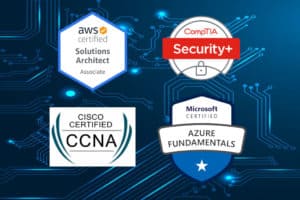Have you ever felt the call to a profession that’s not just a job but a mission, especially one where information and accuracy can save lives? If you’ve nodded your way through this question, seeking NCIC certification might just be your next big leap. The National Crime Information Center (NCIC) operates as the lifeline for law enforcement across the United States, offering comprehensive, centralized information crucial to public safety. If navigating the labyrinth of how to become NCIC certified feels overwhelming, you’re not alone. This space resonates with the aspirations and queries of many.
Here, we peel away the layers of complexity surrounding the NCIC certification process. This blog stands as a beacon for those yearning to extend their professional capabilities into realms where diligence, precision, and the power of information create safer communities.
Quick Takeaways:
- Eligibility for NCIC certification requires employment in a criminal justice or law enforcement agency, a clean background check, and completion of specialized training.
- NCIC Certification Training is accessed through state or NCIC-approved online platforms, emphasizing legal, security, and data entry practices.
- Renew NCIC certification every two years, which may involve continuing education or refresher courses, always verify specifics with your agency.
What Is NCIC Certification?
NCIC Certification refers to the accreditation process that individuals undergo to gain authorized access to the National Crime Information Center (NCIC) database. Managed by the FBI, the NCIC is a comprehensive, computerized index of criminal justice information including criminal records, wanted persons, and stolen properties. This certification is crucial for professionals in the law enforcement and criminal justice fields, as it enables them to efficiently perform background checks, track criminal activities, and access vital information necessary for public safety.
Who Needs NCIC Certification?
Virtually anyone working within or closely with law enforcement agencies could find the NCIC certification instrumental to their roles. This includes:
- Police officers and detectives: For on-the-ground law enforcement personnel, access to the NCIC can provide immediate insights into an individual’s criminal history, outstanding warrants, and more.
- Court personnel: Judges, clerks, and other court officials rely on NCIC data to make informed decisions regarding bail, sentencing, and parole.
- Correction officers: These professionals use NCIC information to monitor inmate backgrounds and ensure the security of their facilities.
- Probation and parole officers: They utilize the database to check compliance of those under their supervision with terms of their release.
While this isn’t an exhaustive list, it underscores the diverse range of professionals who rely on NCIC certification to perform their duties effectively and ensure public safety.
How Do You Become Eligible for NCIC Certification?
Becoming eligible for NCIC certification entails meeting several criteria set forth by the FBI and the NCIC. These prerequisites ensure that only qualified and trustworthy individuals can access sensitive and confidential information. Generally, the path to certification includes:
- Employment with a Law Enforcement or Criminal Justice Agency: Only personnel of recognized entities with a criminal justice function are eligible for NCIC access.
- Background Check: All candidates must undergo a thorough background check. This ensures the integrity of the system and that only individuals with a clean record can access the database.
- Training Program Completion: Candidates must complete the official NCIC Operational and Administrative Training. This program covers the legal aspects, ethical considerations, and practical applications of accessing and utilizing NCIC data.
A practical tip – often overlooked – is to engage in scenario-based training exercises provided by your agency or an accredited training provider. These real-world scenarios prepare you for the complexities and nuances of using the NCIC database in actual law enforcement situations. Not all training programs emphasize this aspect, but it’s a golden opportunity to apply what you’ve learned in a controlled environment before diving into live situations.
Eligibility for NCIC certification might seem daunting at first glance, but it’s all about ensuring that access to sensitive information is in the right hands. By meeting these requirements, professionals in the law enforcement and criminal justice sectors are better equipped to serve and protect their communities.
What Does NCIC Certification Training Involve?
Diving into the world of NCIC Certification Training can seem like navigating a labyrinth at first — intricate and a bit daunting. But fear not! I’m here to guide you through the maze, making sure you don’t hit any dead ends along the way.
NCIC Certification Training primarily targets individuals involved in law enforcement and criminal justice. It’s not your run-of-the-mill program; it requires a specific blend of intellectual rigor and the capacity to handle sensitive information responsibly. Here’s what the journey looks like:
-
Access Points: Training can be accessed through state-designated training centers or online platforms specifically approved by the National Crime Information Center. It’s crucial to select a training provider recognized by NCIC to ensure your certification is valid and recognized nationwide.
-
Curriculum Key Components: Expect a rich mix of theoretical knowledge and practical application. You’ll dive deep into understanding the NCIC database, privacy and legal considerations, how to query and enter data accurately, and the importance of security measures. Practice scenarios and simulations form a significant part of the curriculum, preparing you for real-life situations.
-
During the Training: Brace yourself for an intensive learning curve. Training sessions are tightly packed with information and exercises designed to test your understanding continuously. Regular assessments ensure that you’re on track and fully grasp the content. It’s a rigorous process, but it’s also incredibly rewarding.
One thing most guides don’t tell you? Engaging actively in forums or discussion groups with fellow trainees can be a goldmine of insights and tips. It’s this unique, shared knowledge that can often offer solutions to tricky scenarios you might not find in the official curriculum.
Alright, you’re geared up and ready to dive into the application process — here’s how to ensure you don’t get tripped up along the way:
-
Initial Steps: Your first port of call is to check with your agency’s NCIC administrator or point of contact. They’ll provide you with the specific criteria and application forms required for your unique situation.
-
Documents and Information You Need: Generally, you’ll need to furnish proof of employment within a law enforcement or criminal justice entity, complete a background check, and undergo fingerprinting. It’s also likely you’ll need to endorse your understanding of, and adherence to, the policies governing the use of NCIC systems.
-
Submission: Once you’ve gathered all necessary documents and filled out the forms, submit them through the designated channels — often, this will be directly to your NCIC operational unit or training coordinator.
A pro tip? Double-check and then triple-check your application packet for completeness and accuracy before submission. An oversight as simple as a missing signature can delay your application significantly.
Renewing and Maintaining Your NCIC Certification
Just like your favorite spy movies where the secret agent never rests, maintaining your NCIC Certification requires ongoing vigilance and commitment. Here’s how to stay on top of it:
-
Renewal Timeline: Typically, NCIC Certification needs to be renewed every two years. However, specific requirements can vary by state or agency, so always confirm the exact timeline with your NCIC coordinator.
-
Continuous Education: Staying informed about the latest protocols and database updates is critical. Most agencies will require completion of continuing education units (CEUs) or refresher courses as part of the renewal process.
-
Record-Keeping: Keep meticulous records of all training sessions, refreshers, and CEUs completed. Not only is this vital for renewal, but it also demonstrates your ongoing commitment to professional development.
What many folks miss is the value of proactive engagement with NCIC updates and community forums. Being an active participant not only keeps you at the forefront of new developments but also positions you as a knowledgeable resource in your professional network.
In crafting your path towards NCIC Certification, remember that the journey is as significant as the destination. Embrace the learning process, engage sincerely with the community, and above all, uphold the integrity and responsibility that come with access to national criminal information databases. Your role is crucial, and your commitment to excellence does not go unnoticed.




